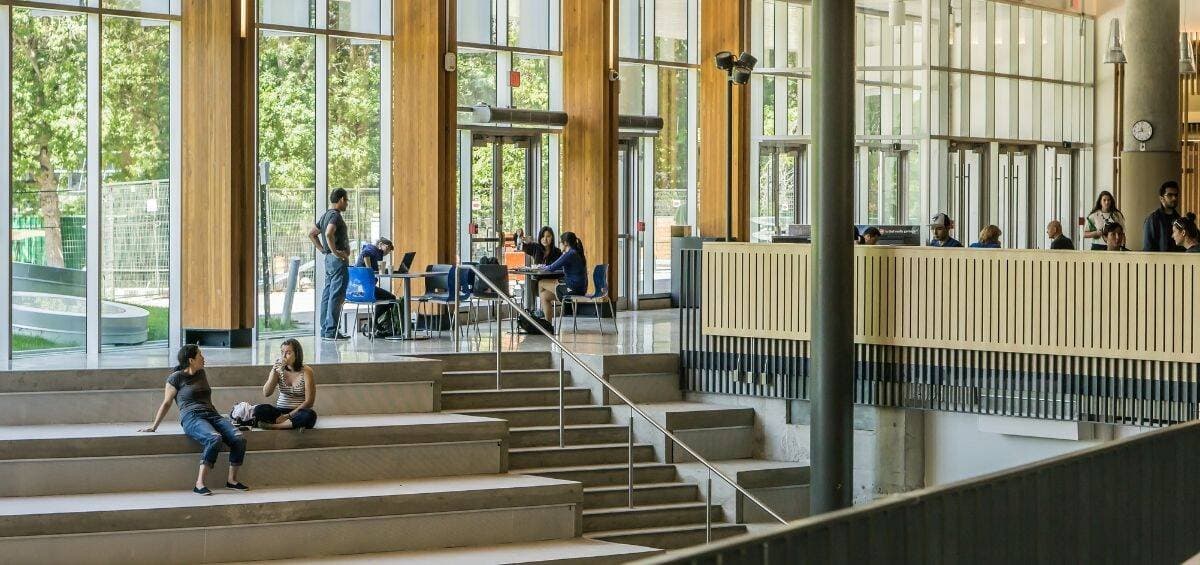Top tips for finding the best university in the UK as an international student
We've identified the main factors which you should consider if you're currently selecting a university in the United Kingdom
20 February 2023 • 7 min read
So, you’ve got your heart set on studying in the United Kingdom. That makes sense: British universities have a strong international reputation. According to the 2023 QS World University Rankings, four of the world's top universities are in the UK.
Or perhaps you dream of studying in one of the UK's oldest universities with ancient buildings and hundreds of years of traditions.
Whatever the reason for your decision to study in the UK, it can be challenging to choose between the hundreds of universities available. How can you choose the best UK universities for international students?
Here are some top tips to help you make the right choice for you.
1. Study the course in detail
Whether you're an international student or not, the most essential part of your decision should always be what the course is like. Have a look at the university's website for details on the course structure, modules you’ll study and how you’ll be assessed. It’s worth bearing in mind that the course structure might differ from how university courses are structured in your home country.
It's important to compare courses at different universities to see which course sounds most interesting. Other universities might cover completely different content even if the course has the same name.
2. Look at the entry requirements
One way to narrow down your choices is to look at universities’ entry requirements. This can be tricky if you’ve not studied A levels or the International Baccalaureate because the entry requirements will be given using these qualifications. You can contact the university for more information on what exam results you’ll need. Or they may have a dedicated international students section on their website with information on what qualifications you need.
You can also contact UK ENIC (the UK national agency for international qualifications and skills) for a statement of comparability which tells you how your qualifications compare to UK equivalents. Or you can contact the UCAS Qualifications Hotline at +044 371 468 0472 or by emailing [email protected] for advice on your qualifications.
If you’re from a non-English speaking country, you’ll likely need to sit an English Language Proficiency Test (EPT). The IELTS (International English Language Testing System) exam is the most common option. However, other English language tests, such as Trinity’s Integrated Skills in English (ISE) and Pearson Test of English (PTE), are also usually accepted. The university’s English language requirements sections will have information on the tests they accept and the score you need. If you want more guidance on entry conditions, look at this blog on the requirements international students need to study in the UK.
If you don’t meet your dream university's entry requirements, see if they offer an International Foundation Programme. This is a one-year program designed for international students to bridge the gap between their existing knowledge and studying for an undergraduate degree.
3. Check out university rankings and league tables
Although you shouldn’t base your decision solely on rankings and league tables, they can be a helpful way to start shortlisting universities. One of the most comprehensive league tables is the Complete University Guide. This allows you to see how UK universities are ranked nationally, regionally and in different subject areas.
It’s a great idea to check which UK universities have a good reputation for your chosen subject or field. For example, check out the universities with the best medical or business schools.
As well as the university’s ranking, you should also pay attention to statistics like student satisfaction and graduate prospects to help you understand more about that university.
According to The Complete University Guide’s 2023 League Table, the top 5 universities are the University of Oxford, the University of Cambridge, the London School of Economics and Politics, the University of St Andrews and Imperial College London.
4. Take note of the international student fees and living costs
Whether you’re funding your studies in the UK yourself, relying on loans, or getting help from family, the cost can be an essential factor in your decision-making process. Although fees for UK students are more or less the same across all universities, fees for international students can vary wildly. According to the British Council, international undergraduate tuition fees range from £11,400 - £38,000, while the average is around £22,200 per year. Have a look at UACU’s list of the cheapest UK universities for more information.
Another factor to consider is where the university is located and what this means for your living costs. Generally, universities in London and the South East will have higher living costs compared to the North. The Student Living Index 2022 lists the most affordable cities in the UK for students to help inform your decision.
5. Consider the number of international students
According to Erudera, there are over 600,000 international students in the UK (based on 2022 data). However, this doesn't mean they're spread evenly across all universities. University College London (UCL) has the highest number of international students, with 23,360 international students compared to only 22,355 UK students. If being part of a large international student community is important to you, do some research to find out about the university's international student population.
6. Research what scholarships are available
Studying in the UK as an international student can be pretty expensive. From high tuition fees to expensive visas, you might feel overwhelmed. However, most universities offer scholarships to international students to help lower the costs.
To check if a university offers any scholarships, check out the scholarships section of their website. They might have scholarships available to students with exceptionally high grades, who are studying a particular course, who are from a specific country, or who are talented at music, art, or sport. Make sure you double-check that you’re eligible as an international student.
You can also use scholarships and funding websites, like the British Council, to search for scholarships across the UK based on your course, subject, university or nationality. Check out this blog on funding for international students for more information.
If you’re planning on studying a postgraduate course, the UK government offers a variety of scholarship programmes to support you. For example, GREAT scholarships offer successful students from 14 countries £10,000 off their tuition fees for many subjects.
What to do after you’ve been offered a place
If you've been offered a place at the university of your dreams, you might need clarification about what to do next. If you've been given a conditional offer, you need to meet the conditions of your offer. This might be finishing an existing qualification or getting the expected exam results. You might also be asked to pay a deposit.
After you’ve met the conditions, you’ll be given an unconditional offer and a Confirmation of Acceptance for Studies (CAS) number. You’ll need this CAS number to help with your student visa application.
After your student visa is sorted, the next big step is choosing where you’ll live. As a first-year student, you can choose between living in your university’s halls of residence, purpose-built student accommodation (PBSA’s), or a privately rented house or flat. Many first-year international students choose to live in halls because they get to live on campus and are closer to lectures and seminars.
However, university accommodation can be limited, and you might be disappointed by the options available. Opting for privately rented accommodation means you have loads more choices and complete control over where and who you live with!
How UniHomes can help
At UniHomes, we offer a vast range of student properties, from deluxe studio flats to spacious 8-bedroom houses, in student cities across the UK. Best of all, every property includes all bills, so you won’t have to stress about setting up complex bill payments!
Check out what properties we have near your university to find the perfect student accommodation for you.




